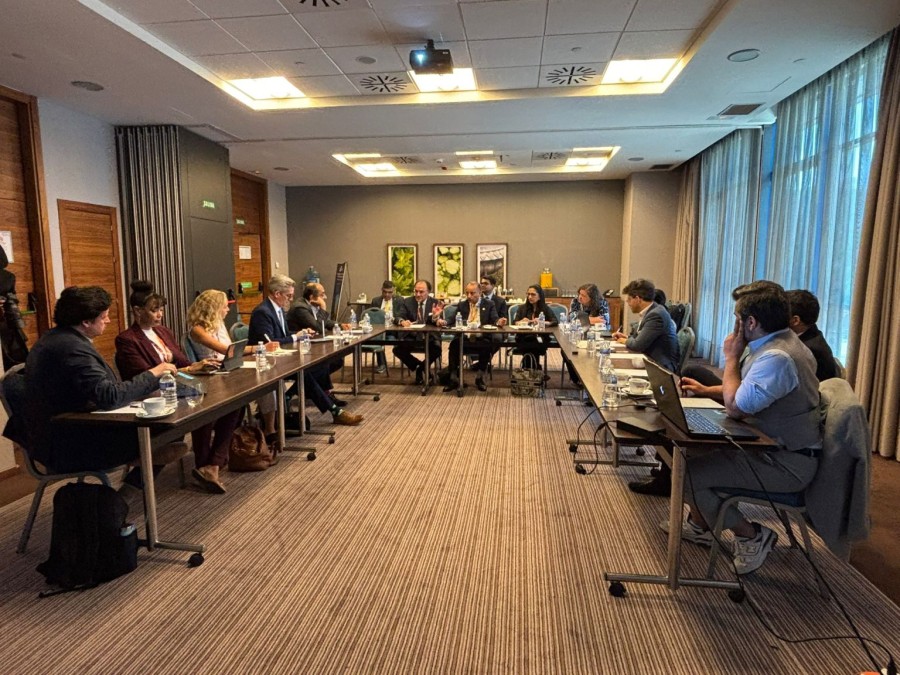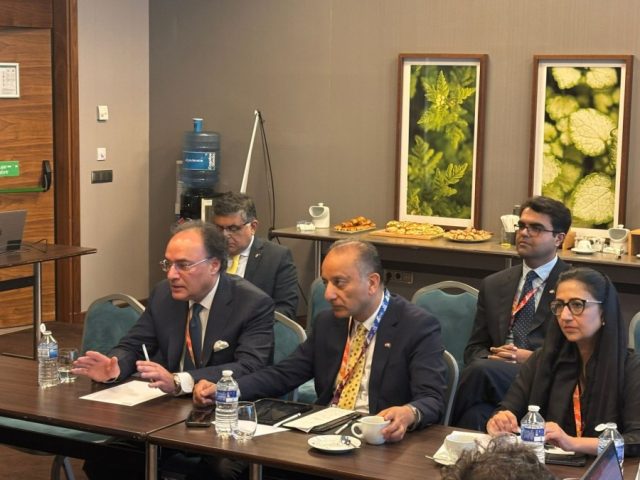SEVILLE, Thursday, July 3, 2025 (WNP): Federal Minister for Climate Change and Environmental Coordination Dr. Musadik Malik has called for a bold transformation in global development finance, urging international stakeholders to prioritize climate resilience, renewable energy investment, and the sustainable use of natural resources such as oceans and rivers.
Speaking at a high-level side event during the Fourth International Conference on Financing for Development (FfD4) in Seville, Spain, Dr. Malik emphasized that sustainable development must be integrated with debt relief and green innovation to effectively address the climate crisis.
He was joined on the panel, titled “Swapping Out Debt for Development: The Debt-for-Climate (DCS) Financing Approach,” by Pakistan’s Federal Finance Minister Muhammad Aurangzeb and Minister of State for Climate Change Shezra Mansab Ali Khan.
The session focused on the growing global momentum behind the Debt-for-Climate Swap (DCS) model, which enables developing countries to restructure external debt in exchange for climate adaptation and resilience investments.
“Our focus must shift from short-term relief to long-term climate resilience,” Dr. Malik said. “Pakistan is actively exploring innovative solutions—such as large-scale solar power generation and the responsible use of rivers and oceans—that can serve as engines of sustainable economic growth.”
Finance Minister Muhammad Aurangzeb echoed the call for rethinking the global financial architecture, emphasizing the need for concessional financing and innovative instruments that enable climate action without derailing development goals. “Countries like Pakistan require access to fair and flexible financing to balance economic growth with environmental responsibility,” he said.
Minister of State Shezra Mansab Ali Khan stressed the importance of multilateral cooperation, stating that climate finance must be “accessible, predictable, and aligned with national development priorities.”

The FfD4 conference brings together world leaders, policymakers, climate experts, and economists to explore sustainable financial models that can support the United Nations Sustainable Development Goals (SDGs) amid mounting climate risks and global inequality.
With Pakistan ranking among the most climate-vulnerable nations, its leadership continues to advocate for greater international support to help transition toward a low-carbon, climate-resilient future.




